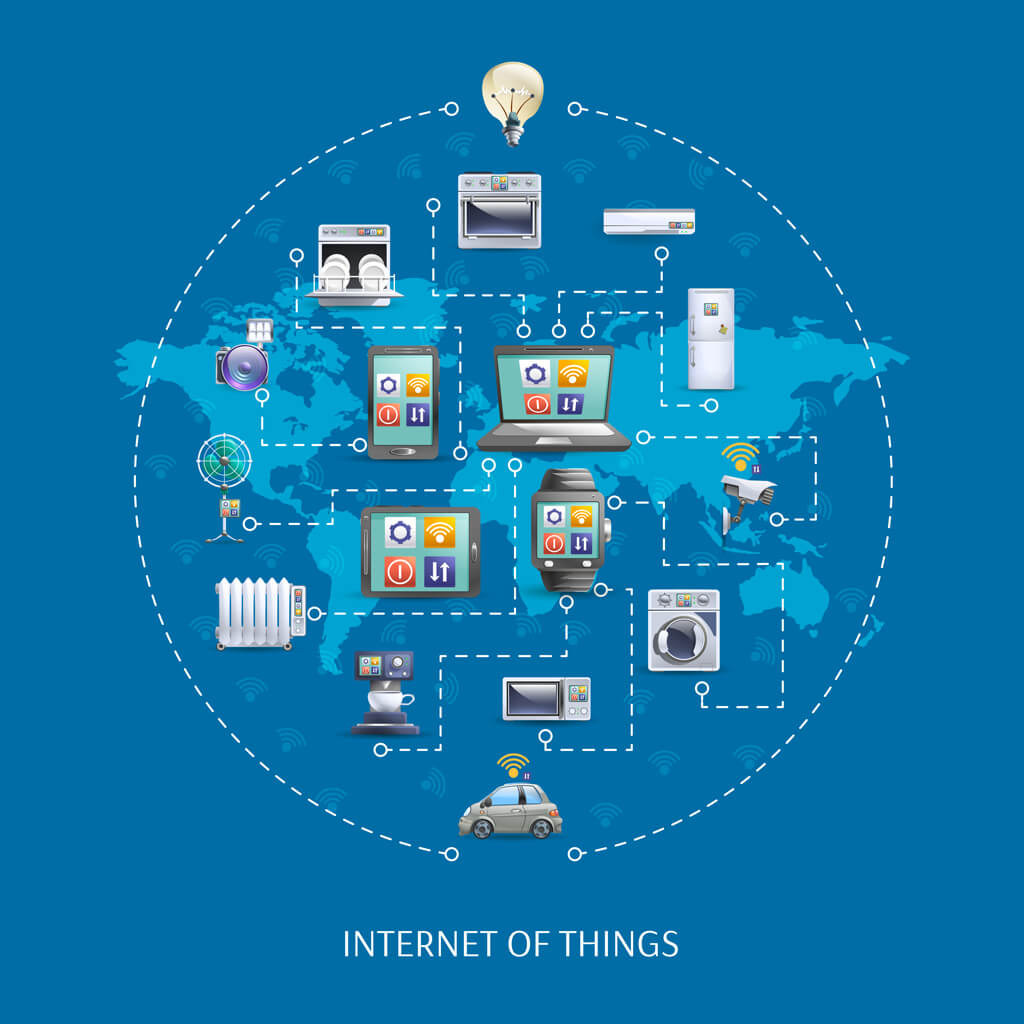The Internet of Things (IoT) is revolutionizing the way industries operate, connecting devices, vehicles, and other items to the internet and to each other. This network of connected devices is having a profound impact on a wide range of sectors, from manufacturing and healthcare to agriculture and transportation.
One of the industries that have benefited greatly from IoT is manufacturing. Smart factories, equipped with connected machines and devices, can now optimize production processes, predict maintenance needs, and reduce downtime. This results in increased efficiency, improved product quality, and reduced costs. For example, IoT-enabled sensors can detect abnormalities in equipment performance and trigger maintenance actions before a breakdown occurs, minimizing disruptions to the production process.
Healthcare is also being transformed by IoT. Connected devices and wearables are enabling remote patient monitoring, real-time health data collection, and more personalized patient care. This allows healthcare providers to detect health issues earlier, improve patient outcomes, and reduce healthcare costs. For instance, IoT-enabled health monitoring devices can track vital signs, such as heart rate and blood pressure, and alert doctors to potential issues, allowing for proactive rather than reactive care.
The agriculture industry is utilizing IoT to increase crop yields and optimize farming practices. Connected sensors in fields can monitor soil moisture, temperature, and nutrient levels, enabling farmers to make data-driven decisions about irrigation, fertilizer application, and planting strategies. This precision agriculture approach helps improve crop productivity while reducing water usage and minimizing environmental impact.
Transportation is also being revolutionized by IoT, with connected vehicles and infrastructure improving road safety, traffic management, and fleet efficiency. For example, IoT-enabled vehicles can communicate with each other and their surroundings, providing drivers with real-time data on traffic conditions, optimal routes, and potential hazards, leading to smoother journeys and reduced congestion.
The impact of IoT is also being felt in the energy industry, with smart grids utilizing connected devices to optimize energy distribution and consumption. IoT-enabled meters and sensors can provide real-time data on energy usage, enabling utilities to balance supply and demand more efficiently and reduce energy losses. Additionally, IoT can facilitate the integration of renewable energy sources, such as solar and wind power, into the grid, contributing to a more sustainable energy future.
Another industry reaping the benefits of IoT is retail. Smart shelves and inventory management systems, enabled by IoT, can track stock levels, detect missing or misplaced items, and provide real-time data on customer behavior. This helps retailers optimize their inventory, improve customer service, and enhance the overall shopping experience.
In conclusion, the Internet of Things is having a profound impact on industries across the spectrum, driving innovation, efficiency, and transformation. With its ability to connect devices, collect and analyze data, and facilitate real-time decisions, IoT is set to continue shaping the future of these industries and many others, creating a more connected and efficient world.
As IoT continues to evolve and advance, its impact on industries is expected to grow and become even more profound. The convergence of IoT with other emerging technologies, such as artificial intelligence, machine learning, and 5G networks, will likely unleash even more innovative applications and solutions. Industries are only just beginning to scratch the surface of what IoT can achieve, and the future promises even more exciting possibilities.
One of the key benefits of IoT that cuts across industries is the ability to make data-driven decisions. With a multitude of connected devices collecting and transmitting data in real time, organizations can gain valuable insights, predict outcomes, and optimize their processes. This data-driven approach enables businesses to be more agile, responsive, and efficient, ultimately improving their bottom line.
The security and privacy implications of IoT cannot be overlooked. As the number of connected devices increases, so does the attack surface for potential cyber threats. Ensuring the security and privacy of IoT devices, networks, and data is critical to maintaining the integrity and safety of these systems. Robust security measures, encryption technologies, and data protection practices must be implemented to address these challenges.
The future of IoT is full of potential, but it also comes with responsibilities and challenges. As we embrace the benefits that this technology brings, it is essential to carefully consider the security, ethical, and privacy implications to ensure a safe and responsible digital future. Striking a balance between innovation and safeguarding personal information will be a key focus as IoT continues to evolve and shape our world.
